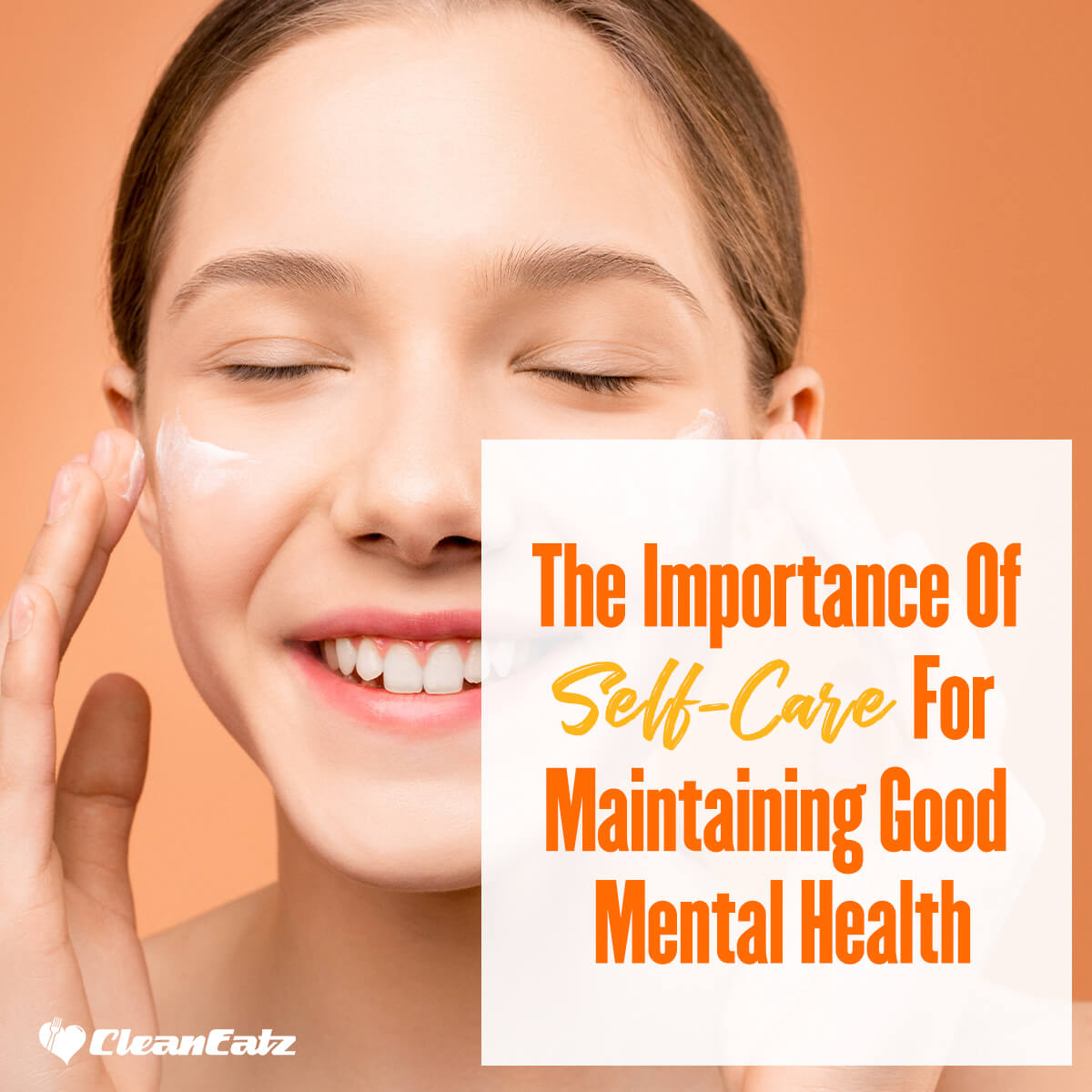
The Importance Of Self Care For Maintaining Good Mental Health
Jason Nista
Healthy Lifestyle
|
Mental Health
6 minute read
Self-care is the practice of taking care of one's own physical, emotional, and mental well-being. It is an essential aspect of maintaining good mental health, as it allows individuals to manage stress and improve their overall quality of life. The purpose of this article is to explore the importance of self care in maintaining good mental health and provide tips on how to incorporate self-care into daily life.
Understanding Mental Health
Mental health refers to the overall well-being of an individual's mind, emotions, and behavior. It encompasses a wide range of conditions, including anxiety, depression, and stress.
According to the World Health Organization (WHO), one in four people will experience a mental health condition at some point in their lives. It is essential for individuals to address their mental health, as poor mental health can negatively impact one's daily life, relationships, and overall well-being.
Importance of Self Care for Maintaining Good Mental Health
Self-care plays a crucial role in maintaining good mental health. It encompasses various practices and habits that individuals can incorporate into their daily lives to prioritize their psychological well-being. The importance of self care for mental health cannot be overstated, and here are some key reasons why it's essential:
Physical Self-Care
Physical self-care, such as exercise, healthy eating, and meal plan delivery, can improve mental health. Eating a well-balanced diet can improve mental health by providing the body with the necessary nutrients to function properly. Regular exercise has been shown to reduce symptoms of anxiety and depression, improve mood, and increase overall well-being. Adequate sleep is also crucial for maintaining good mental health. Poor sleep can lead to mood swings, irritability, and difficulty concentrating.
Emotional Self-Care
Emotional self-care involves practices such as journaling. Journaling can be a helpful tool for individuals to process their thoughts and emotions. You can also get therapy as it gives you an opportunity to work through any unresolved issues and improve your mental health. Additionally, you can perform relaxation techniques, such as yoga and meditation, which can help to reduce stress and promote a sense of calm.
Social Self-Care
Social activities such as building and maintaining relationships, joining a support group, and volunteering, can help improve mental health. The relationship between physical activity and mental health is also worth noting in this context. Building and maintaining relationships can improve mental health by providing a sense of belonging and support. On the other hand, joining a support group can provide a sense of community and understanding. Volunteering can also give a sense of purpose and improve overall well-being. These social activities, when combined with regular physical activity, can have a synergistic effect on promoting mental well-being.
It is important to note that self-care is not a one-time fix for mental health issues, but rather a continuous effort to take care of oneself, and it should be tailored to the individual's needs. Additionally, it is important to remember that self-care doesn't have to be a big or grandiose action, it can be as simple as taking a walk, reading a book, or taking a relaxing bath. The key is to make self-care a regular part of one's daily routine to help improve and maintain good mental health.
The Effects of Neglecting Self-Care
Neglecting self-care can lead to a variety of negative effects on mental health, including increased stress and anxiety. When we neglect self-care, we are not giving our minds and bodies the attention and care they need to function properly. This can manifest in a number of ways, such as feeling tired, irritable, and overwhelmed. We may also experience physical symptoms, such as headaches and muscle tension. Neglecting self-care can also lead to burnout, a state of physical, emotional, and mental exhaustion caused by prolonged stress.
One of the most common examples of neglecting self-care is not getting enough sleep. The relationship between sleep and mental health is well established, as it is well known that lack of sleep can cause physical and mental fatigue, as well as mood swings, irritability, and a lack of focus. Additionally, not taking the time to eat well and exercise can also be a sign of neglecting self-care. These habits can lead to physical health problems, such as obesity and heart disease, which can also negatively impact mental health. Prioritizing the interplay between sleep and mental health, as well as maintaining a healthy lifestyle through diet and exercise, is essential for overall well-being.
Tips for Incorporating Self-Care Into Daily Life
Incorporating self-care into daily life can be challenging, but it is essential to make it a priority. Here are a few self-care tips for mental health that will be a regular part of your daily routine:
Setting Realistic Goals
It is essential to set realistic goals when it comes to self-care. Start small, and gradually increase the amount of time you spend on self-care activities. It is important to remember that self-care is an ongoing process and it may take time to develop habits and routines.
Prioritizing Self-Care Activities
Make sure to prioritize self-care activities, and make them a non-negotiable part of your daily routine. One way to do this is by setting aside time for self-care activities. This can be as simple as taking a few minutes to meditate or journal before starting the day or taking a lunch break to go for a walk.
Finding a Balance
Ensure to find a balance between self-care activities and other responsibilities. This can be done by scheduling self-care activities into your calendar and treating them as important appointments. You can also make a list of self-care activities that you enjoy and make sure to include them in your schedule.
Final Thoughts
Self-care is an essential aspect of maintaining good mental health. It allows individuals to manage stress, improve their overall quality of life, and promote well-being. Incorporating self-care into daily life can be challenging, but it is essential to make it a priority. By setting realistic goals, prioritizing self-care activities, and finding a balance, individuals can make self-care a regular part of their daily routine. Remember, self-care is not selfish, it is necessary for maintaining good mental health.
FAQ
What is self-care and why is it so important for your health?
Self-care is the practice of taking care of one's physical, mental, and emotional well-being. It is important for your health because it can help you to manage stress, improve your mood, increase resilience, and maintain balance in life.
How do you take care of yourself and maintain good mental health?
You can take care of yourself and maintain good mental health by prioritizing self-care activities such as exercise, healthy eating, and getting enough sleep.
Why is it important to develop your own mental health and well-being self-care strategies?
It is important to develop your own mental health and well-being self-care strategies because it can help you to better manage stress, improve your mood, increase resilience and maintain balance in your life, which can lead to better overall well-being.
Related Articles
How and What to Eat to Optimize Brain Health?
16 minute read
What Is an Oleato?
6 minute read



